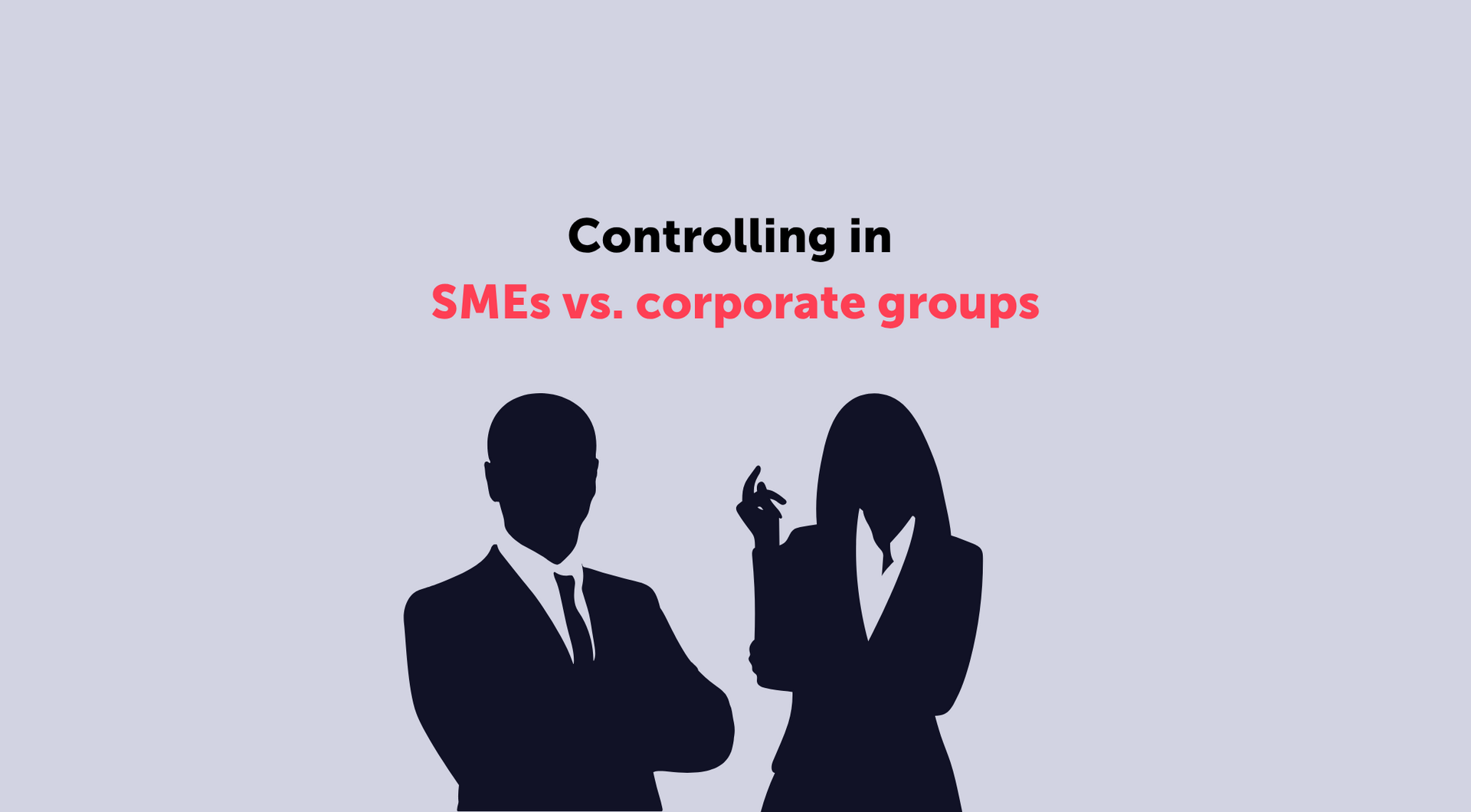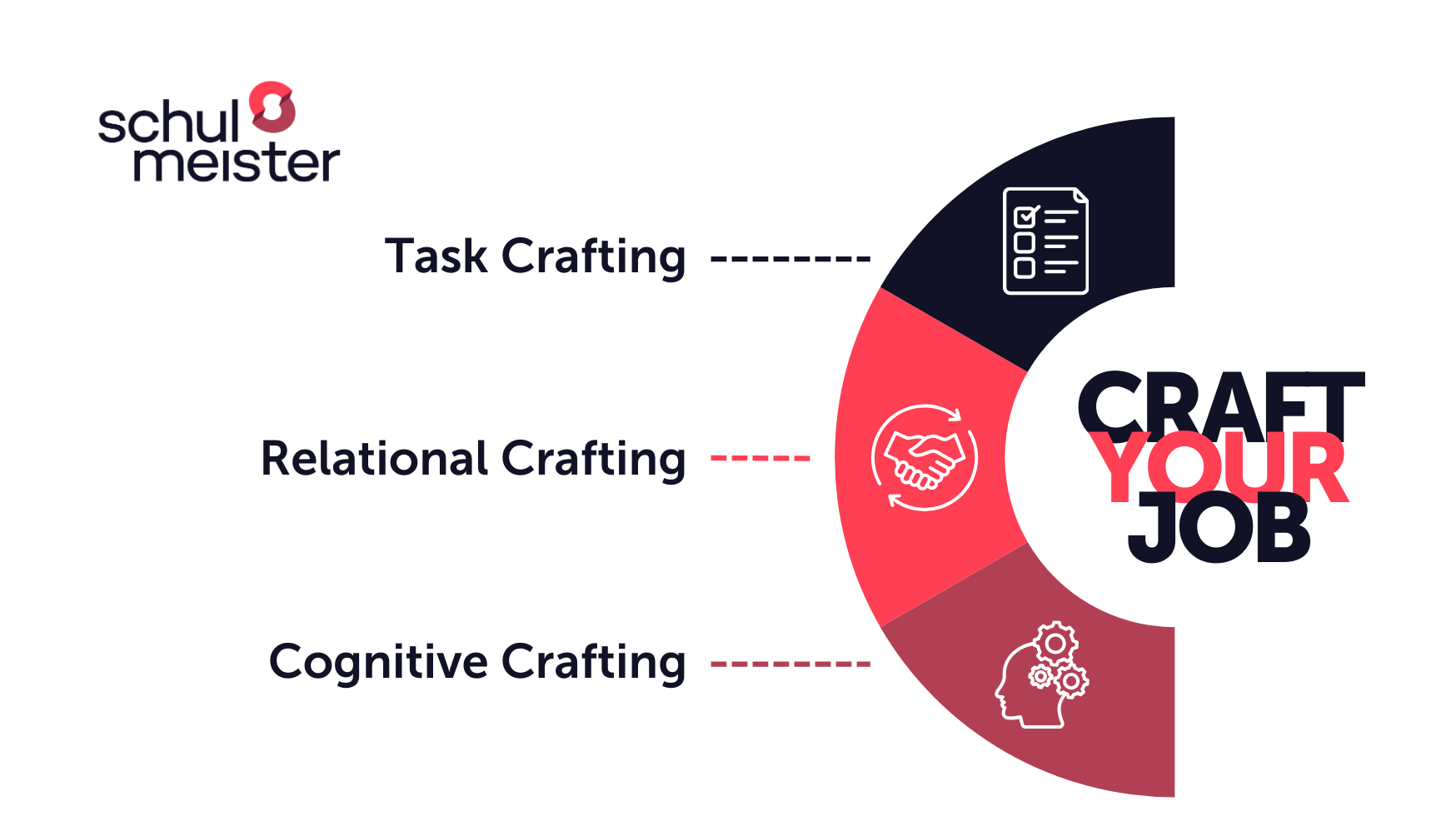Short answer: Whether you are better suited to working as a controller in a medium-sized company or in a large corporation depends, among other things, on whether you prefer to cover a broad range of areas as an all-rounder or work as a specialist with standardised processes.
This comparison clearly shows you the differences between the two worlds – from role profiles and tools to career paths – and helps you find your ideal job.
Role of a controller: generalist vs. specialist
As a controller in a medium-sized company, you are often an all-rounder. You are responsible for several areas at the same time, such as cost accounting, liquidity planning and monthly financial statements. You work closely with the management and are valued as a strategic sparring partner. Your tasks are varied, but also operational in nature.
In a corporate group, you tend to be a specialist as a controller. For example, you may be exclusively responsible for production controlling or reporting in accordance with IFRS. The advantage: you build up in-depth expertise and can become a professional in your field. The downside is that your influence is often more regulated and your view remains limited to ‘your area’.
Conclusion: If you love variety and enjoy thinking entrepreneurially, you will feel at home as a controller in a medium-sized company. If you want to delve deeply into a topic and value standardised processes, you will find your home as a controller in a large corporation.
Decision-making processes: directness vs. complexity
Medium-sized companies score points with quick decisions. The CFO or managing director is often just a few doors down. Introducing a new KPI logic? It can be implemented in a matter of days. Your opinion carries weight and you are seen as a source of inspiration.
Corporations have clear hierarchies and processes. New ideas go through committees, coordination loops or are rolled out globally. Decisions take time – but they are better documented, legally secure and part of an international framework.
Conclusion: If you want to play an active role in controlling and value short decision-making processes, medium-sized companies offer you the ideal environment. If you love structure and enjoy working within clearly defined processes, a large corporation is the right place for you.
Tools & systems in controlling: flexibility vs. best practice
In controlling departments in medium-sized companies, Excel may still reign supreme. ERP systems such as SAP, MS Dynamics or BMD are frequently used – but not always to their full potential. Many controlling processes have developed individually and depend heavily on you as a person. You play an active role in shaping them, but you are also responsible for maintenance and further development.
Modern controlling tools dominate in large corporations. SAP S/4HANA, Power BI, Tagetik and Hyperion are standard. Many processes are automated or run via shared service centres. You work with consolidated data, but are also subject to rigid system boundaries.
Conclusion: Controllers who prefer to develop their own solutions will find creative freedom in medium-sized companies. Those who prefer to work with established tools will benefit from professional structures in a large corporation.
Career & further training in controlling: visibility vs. programmes
In medium-sized companies, performance quickly becomes visible. You take on responsibility early on, are directly involved in management and can prove yourself through initiative and skill. However, career paths are less formalised – there is no ‘senior controller track’, for example, but rather individual development paths.
Large corporations offer structured career programmes. From controller academies and mentoring to internal job exchanges, development is systematised. On the other hand, advancement takes longer and you are often one of many, with correspondingly more competition for management positions.
Conclusion: If you are looking for structured development, you will find it in a corporation. If you want to take on responsibility quickly and be visible, you are in good hands in a medium-sized company.
Corporate culture: family-oriented vs. international
Medium-sized companies often have a family culture. Everyone knows each other, eats lunch together and is on first-name terms at all levels. Personal values, loyalty and trust play a major role. At the same time, roles are not always clearly defined and processes can seem chaotic.
Corporations offer an international and diverse working environment. English is used on a daily basis, many colleagues are based abroad, and collaboration takes place via teams, Zoom, etc. The culture is more professional, but also more distant – which is a relief for some, but feels anonymous to others.
Conclusion: Those who value closeness and personal relationships will feel more at home in medium-sized companies. Those looking for international insights and cultural diversity are in good hands at a large corporation.
Salary & benefits: differences in detail
In terms of salary, large corporations tend to offer more to controllers. In addition to a higher fixed salary, bonuses, share programmes, pension commitments or international assignments are often included. Further training, health benefits and mobility solutions are also more extensive.
Salaries are often slightly lower in medium-sized companies, but they are more negotiable. In addition to the traditional salary, smaller companies score points with flexibility, short decision-making processes for salary adjustments and often a better work-life balance.
Conclusion: If you are looking for a total package of monetary and non-monetary benefits, you should compare carefully – and not just look at the fixed salary.
Conclusion: Are you happier as a controller in a medium-sized company or in a large corporation?
There is no blanket answer to the question ‘medium-sized company or large corporation?’ Both worlds have their charms – the decisive factor is what suits your personal goals, values and skills.
- Do you want to shape things, take on responsibility and be close to management? Then a medium-sized company is the right place for you.
- Would you like to specialise, work internationally and grow within established structures? Then a large corporation offers you the ideal conditions.
- You can find another interesting article on the topic of SMEs vs. large corporations (+ start-ups) here: Large corporation, SME or start-up? Which context suits me best? | XING
The main difference lies in the structure and focus of the controlling function. In medium-sized companies, controllers are often generalists who cover a broad spectrum of tasks, from budget planning and investment calculations to cost control. In corporate groups, on the other hand, controlling is usually more specialised. Here, there are separate departments for financial controlling, group controlling or performance controlling, for example, often with complex reporting structures and global requirements.
Controlling in medium-sized companies is suitable for people who want to work creatively, enjoy being close to the operational side of the business and appreciate a wide range of tasks. Those who prefer short decision-making processes, direct communication with management and entrepreneurial thinking will feel at home in this environment. Career starters can also often take on responsibility more quickly here.
A career in corporate controlling offers clear structures, opportunities for specialisation and international prospects. Employees often benefit from extensive training programmes, internal career paths and the opportunity to develop into expert roles or management positions. If you enjoy working with complex data sets and standards and have a passion for corporate processes, you will find the right environment here.
In medium-sized companies, controllers are often all-rounders: they are responsible for the entire business management process, prepare reports, carry out ad hoc analyses and support strategic decisions.
In large corporations, tasks are usually clearly defined – e.g. cost accounting, forecasting or group reporting – and are based on specified processes and standardised tools (e.g. SAP, Hyperion, BI systems).
Within large corporations, careers often follow structured paths: specialist careers, project management or leadership. There are clearly defined hierarchical levels and regular development programmes. In medium-sized companies, career paths are less formalised but often more flexible. Those who show initiative can quickly take on responsibility or open up new areas of responsibility – e.g. in commercial management or business development.
Small and medium-sized enterprises often have a family-like, pragmatic culture with close communication with management and direct influence. Decisions are made quickly and personal relationships are important. In large corporations, the corporate culture is usually process-oriented and international. Stricter guidelines and communication channels apply, which promotes professionalism and efficiency – but also results in less personal contact.
The decision depends largely on your personal values, work preferences and career goals.
Ask yourself the following questions, for example:
- Do I prefer to work in a broad field or in a highly specialised area?
- Do I value direct influence or clear structures?
- Am I looking for creative freedom or planning security?
- An internship, targeted advice or a change between the two worlds can help you gain a realistic picture. Job interviews also often provide insight into the culture and working methods of a company.









![[Translate to English:] Aus- und Weiterbildung im Finanzbereich](/fileadmin/user_upload/02_blog___news/Titelbild-aus-und-weiterbildun-finanzbereich.png)
